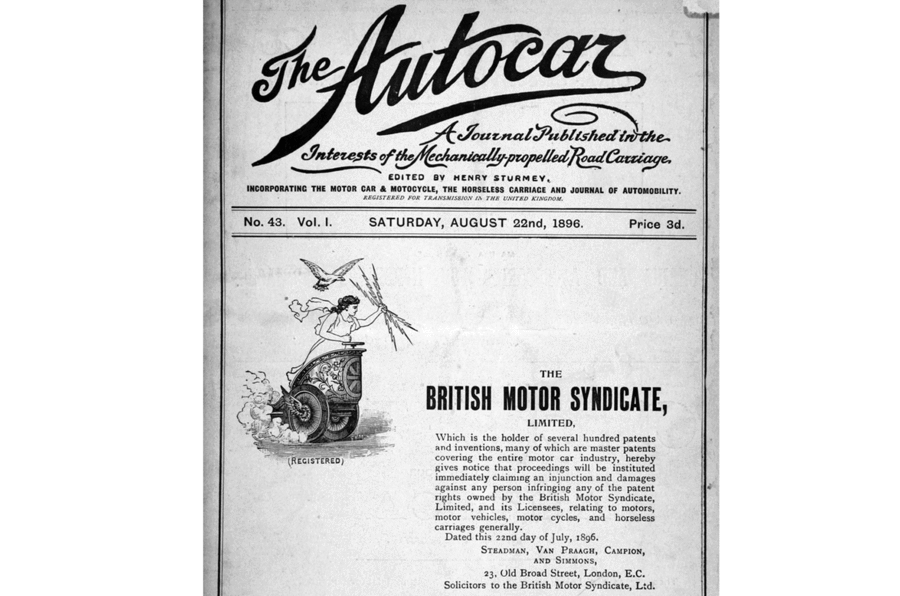Over a century ago, on 22 August 1896, the front cover of Autocar magazine carried an advert from the British Motor Syndicate Limited.
It threatened legal proceedings against anyone infringing upon its intellectual property, describing itself as "the holder of several hundred patents and inventions, many of which are master patents covering the entire motor car industry".
Indeed, the advert doesn't seem so odd when you learn that the BMS was a company created with the aim of acquiring every “master patent” so that no car could be made in the UK without paying it big royalties.
It was created out of the Daimler Motor Syndicate, which held the British rights to Daimler engines. The German company was the early leader in the field; indeed, it had arguably invented the car itself back in 1885.
The BMS followed up on its promise of litigation in June 1897, suing a company over infringement of a patent relating to starter motors. However, it had also been taken to court several times – including by Coventry-based car maker Humber, which didn't like the idea of its founder, Thomas Humber, being a director of the BMS.
There were also a number of criticisms appearing in newspapers by this time, not least because the BMS was interlinked with a number of other companies owned by engineer and businessman Harry J Lawson, and people were warned not to buy shares.
By the end of 1897, things were indeed beginning to go wrong. The patents that the BMS held – many of them dating back almost a decade – did not prove to be 'master patents' after all, such was the rapid rate of progress within the automotive industry.
After litigation was brought against the BMS by a pair of engineers, the company declared bankruptcy and was issued a winding-up order.
It was restructured and relaunched, becoming the British Motor Company. This also went under in 1900, and re-emerged as the British Motor Traction Company.
This went public valued at £1 million but was already taken to court within eight months of launching. It survived a winding-up petition in 1902 before the whole scheme finally came to an end in 1908.
Mind you, that wasn’t before the main man behind this unjustness, Lawson, was sentenced to a year of hard labour in Wormwood Scrubs for fraudulently obtaining money from some of his shareholders, having issued false statements.
Read more





Add your comment